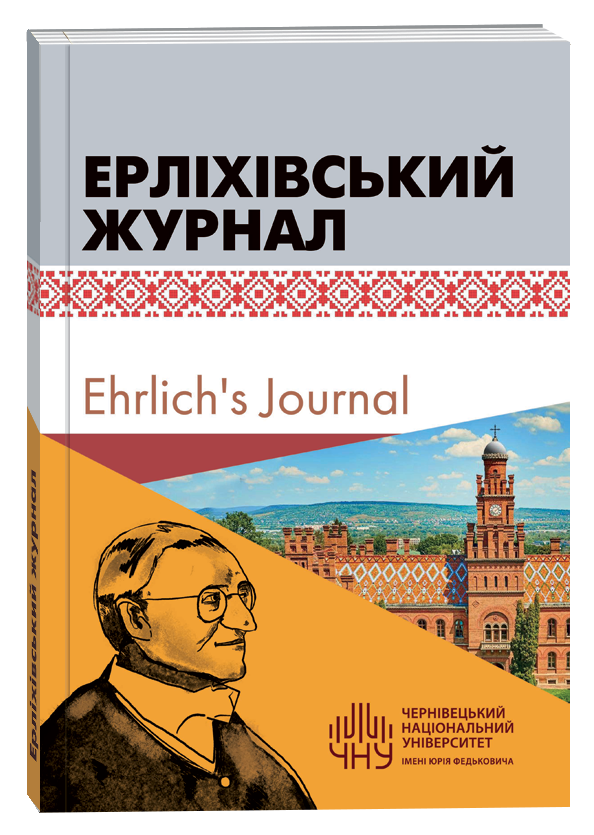THE PRINCIPLE OF THE RULE OF LAW IN THE LEGAL SYSTEMS OF THE EU AND UKRAINE: A COMPARATIVE LEGAL ANALYSIS
DOI:
https://doi.org/10.32782/ehrlichsjournal-2025-13.06Keywords:
rule of law; acquis communautaire; legal system; European Union; case law; legal integration; Constitution of UkraineAbstract
The article presents a comparative legal analysis of the principle of the rule of law in the legal systems of the European Union and Ukraine, taking into account contemporary integration processes and Ukraine’s orientation toward alignment with the acquis communautaire. The rule of law is one of the fundamental principles for building a democratic state governed by the rule of law and ensuring the supremacy of human rights. In EU law, it serves as a system-forming constitutional principle that guarantees the unity and primacy of European Union law over the national legislation of Member States, including constitutional norms. The article analyzes key rulings of the Court of Justice of the European Union (Costa v. ENEL, Internationale Handelsgesellschaft, Simmenthal), which laid the foundation for the doctrine of EU law supremacy. Particular attention is given to the concept of direct effect of acquis communautaire norms, which enables individuals and legal entities to invoke EU law to protect their rights even in the absence of national implementing legislation. In Ukraine’s legal order, the principle of the rule of law is enshrined in the Constitution (Article 8), but it is largely declarative and lacks a detailed framework for implementation. Judicial practice in Ukraine demonstrates inconsistency in the application of this principle: it is often invoked in a formalistic manner without substantive analysis or reasoning. The article emphasizes the importance of distinguishing between formal and substantive approaches to interpreting the rule of law, highlighting the need for consistent implementation of European standards in the legal practice of Ukrainian courts. Based on the conducted analysis, the article concludes that there is a structural difference in the conceptualization, normative formulation, and practical implementation of the rule of law in the European Union and Ukraine. This discrepancy is identified as a significant barrier to Ukraine’s effective legal integration into the European legal space. The author proposes that the doctrine of the Court of Justice of the European Union – supported by the principles of direct effect and the primacy of EU law – should serve as a model for Ukraine’s gradual institutional convergence with the EU.
References
Юхимюк О., Дмитрук С. Формування принципу верховенства права Європейського Союзу. Історико-правовий часопис. 2018. № 2. С. 39–43.
Judgment of the Court of 15 July 1964. Flaminio Costa v E.N.E.L. Reference for a preliminary ruling: Giudice conciliatore di Milano – Italy. Case 6/64. URL: https://eur-lex.europa.eu/legal-content/EN/TXT/?uri=celex:61964CJ0006 (data access: 16.05.2025).
Judgment of the Court of 17 December 1970. Internationale Handelsgesellschaft mbH v Einfuhr- und Vorratsstelle für Getreide und Futtermittel. Reference for a preliminary ruling: Verwaltungsgericht Frankfurt am Main – Germany. Case 11–70. URL: https://eur-lex.europa.eu/legal-content/EN/TXT/?uri=celex:61970CJ0011 (data access: 16.05.2025).
Judgment of the Court of 9 March 1978. Amministrazione delle Finanze dello Stato v Simmenthal SpA. Reference for a preliminary ruling: Pretura di Susa – Italy. Discarding by the national court of a law contrary to Community law. Case 106/77. URL: https://eur-lex.europa.eu/legal-content/EN/TXT/?uri=celex:61977CJ0106 (data access: 16.05.2025).
Рішення Конституційного Суду України у справі за конституційним поданням Верховного Суду України щодо відповідності Конституції України (конституційності) положень статті 69 Кримінального кодексу України (справа про призначення судом більш м’якого покарання) від 02.11.2004 № 15-рп/2004. URL: https://ccu.gov.ua/storinka-knygy/34-verhovenstvo-prava (дата звернення: 16.05.2025).
Погребняк С. Принцип верховенства права: деякі теоретичні проблеми. Вісник Академії правових наук України. Харків : Право, 2006. № 1(44). С. 26–36.
Доповідь Європейської комісії «За демократію через право» (Венеційська комісія), схваленої Венеційською комісією на 86-му пленарному засіданні (Венеція, 25–26 березня 2011 року). URL: https://www.venice.coe.int/webforms/documents/default.aspx?pdffile=CDL-AD(2011)003rev2-ukr (дата звернення: 16.05.2025).
Конституція України від 28.06.1996 № 254к/96-ВР. URL: https://zakon.rada.gov.ua/laws/show/254%D0%BA/96-%D0%B2%D1%80#Text (дата звернення: 16.05.2025).
Підвальна М. З. Проблеми застосування принципу верховенства права. Університетські наукові записки. 2012. № 3. С. 17–24.
Шульга Є. Роль та значення принципу верховенства права в адміністративно-деліктних відносинах. Актуальні проблеми правознавства. 2017. Вип. 4(12). С. 170–175.
Lenaerts K., Gutiérrez-Fons J. A. To Say What the Law of the EU Is: Methods of Interpretation and the European Court of Justice. Columbia Journal of European Law. 2013. Vol. 20, № 1. P. 3–61.
Moreiro González C. J. Implementing the Rule of Law in the European Union: How Long Trapped in Penelope's Spinning Wheel from Article 2 of the TEU? Cambridge Yearbook of European Legal Studies. 2024. Vol. 25. P. 161–173.
Gallo D. Rethinking direct effect and its evolution: A proposal. European Law Open. 2023. Vol. 2, № 3. P. 474–494.
Уварова О. Принцип верховенства права в судовій практиці України. Філософія права і загальна теорія права. 2013. № 1. С. 65–72.
Цувіна Т. А. Принцип верховенства права у практиці Європейського Суду з прав людини. Часопис Київського університету права. 2019. № 4. С. 373–379.








